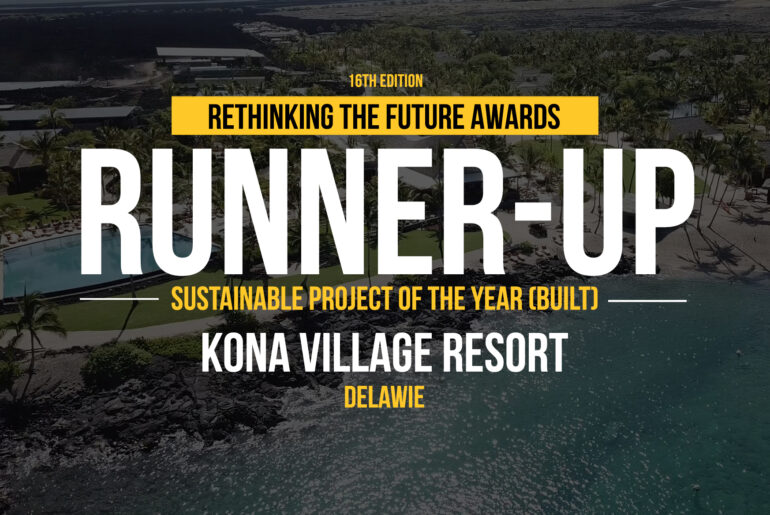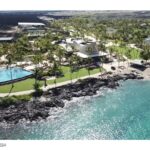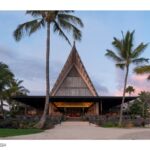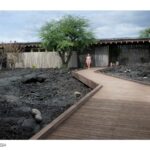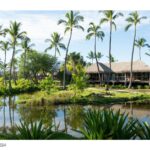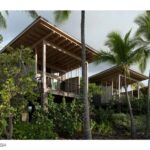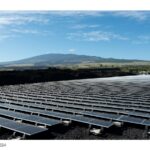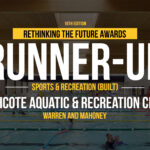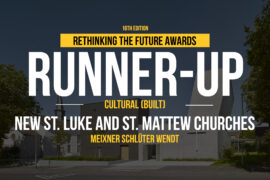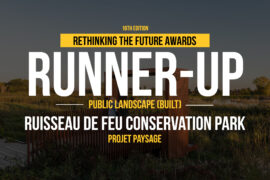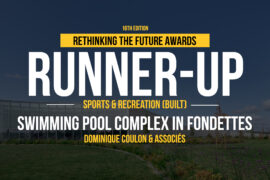“Malama ‘Aina” – the rich, Hawaiian culture of caring for and honoring the land – was integrated into every aspect of the redevelopment of Kona Village Resort, an 81-acre Rosewood Resort on the idyllic Kona Coast of the Big Island of Hawai’i. Kona Village Resort achieved three LEED Gold Certifications in 2023 with Moana (main restaurant), Asaya (guest spa) and Employee Village.
Rethinking The Future Awards 2024
Second Award | Sustainable Project of the Year (Built)
Project Name: Kona Village Resort
Category: Sustainable Project of the Year (Built)
Studio Name: Delawie
Design Team: Walker Warner Architects
Area: 81-acre
Year: 2023
Location: Kailua-Kona, HI
Owner/Developer: Kennedy Wilson
Interiors: Nicole Hollis
Lighting: Ruzika Company
Landscape: Vita
Structural: GFDS
Civil: Sam O. Hirota, Inc.
MEP: InSynergy Engineering, Inc.
Deconstruction: Re-use Hawai‘i
Construction: Nordic PCL Construction & Ali’i Builders
LEED Consultant: VCA Green
Solar engery Partner: Good Current
Photography Credits: Olivier Koning
Render Credits:
Other Credits:
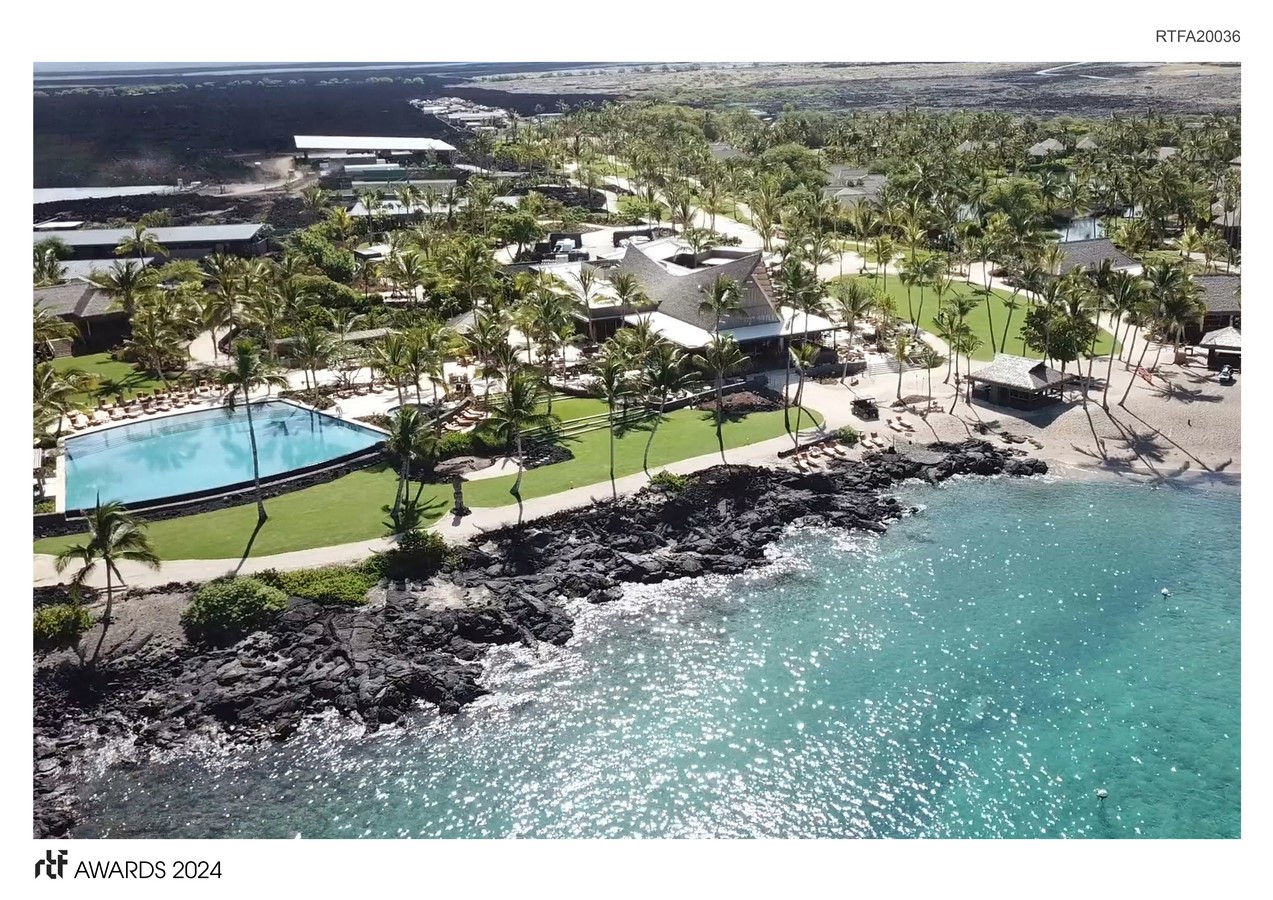
The design and construction of Kona Village Resort embodies being light on this sacred land. The design raised the standards addressing energy efficiency, water conservation and performance for green building design. The remains of the existing resort, destroyed by a tsunami in 2011, were deconstructed and sent to a re-use facility to divert waste. Efforts throughout the reconstruction were made to preserve as much of the natural lava as possible.
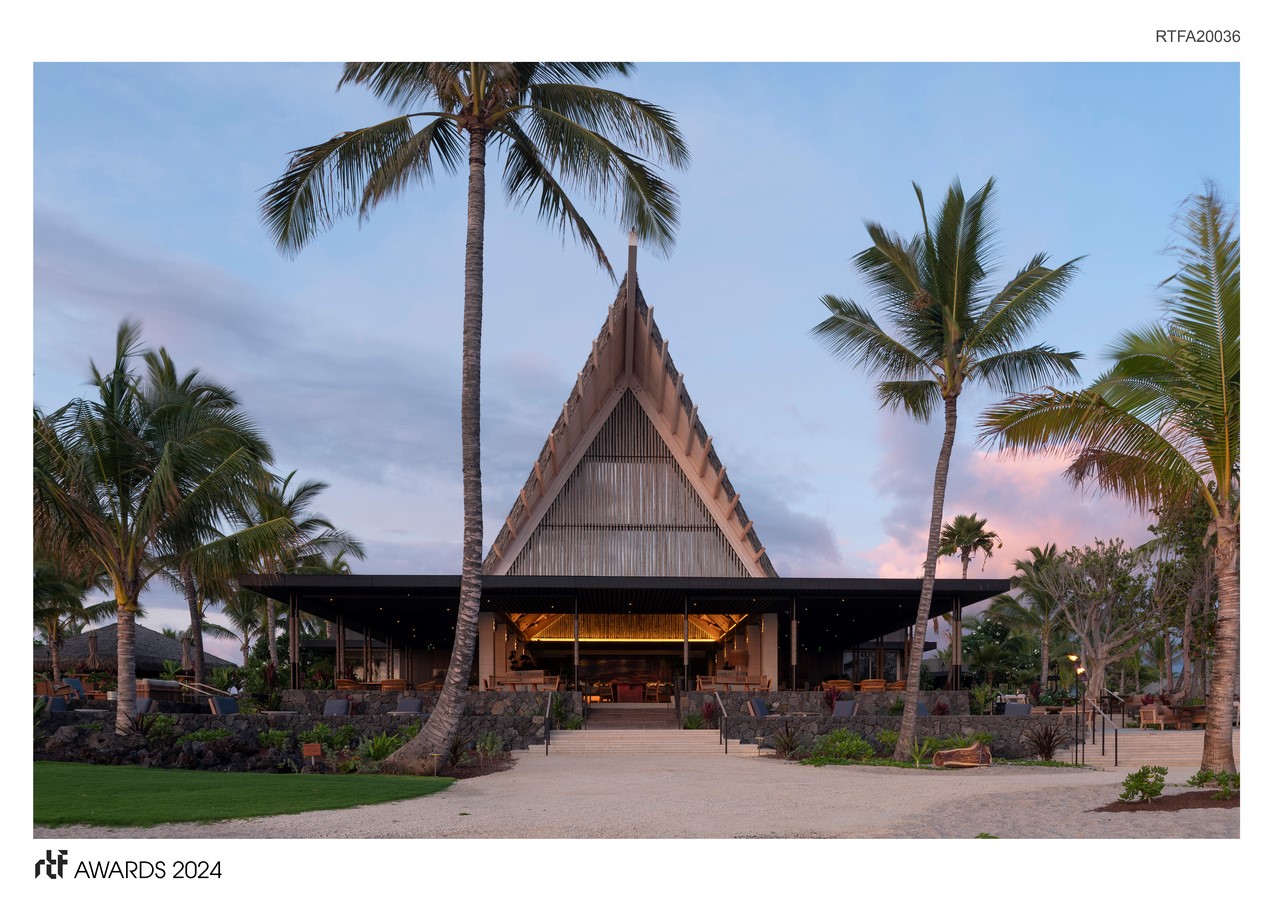
There are 21 archeological sites exemplary of Hawaiian culture, including: petroglyphs, salt gathering rocks and 22 anchialine pools. The design protects and features these sites for guests to engage in Hawaiian heritage, culture and practices. The historic anchialine pools were protected with construction buffers, erosion control and invasive species removal. Bio-filter plants, gravel beds and water circulation systems implemented improve water quality. The resort continues to monitor the natural marine life and control invasive species.
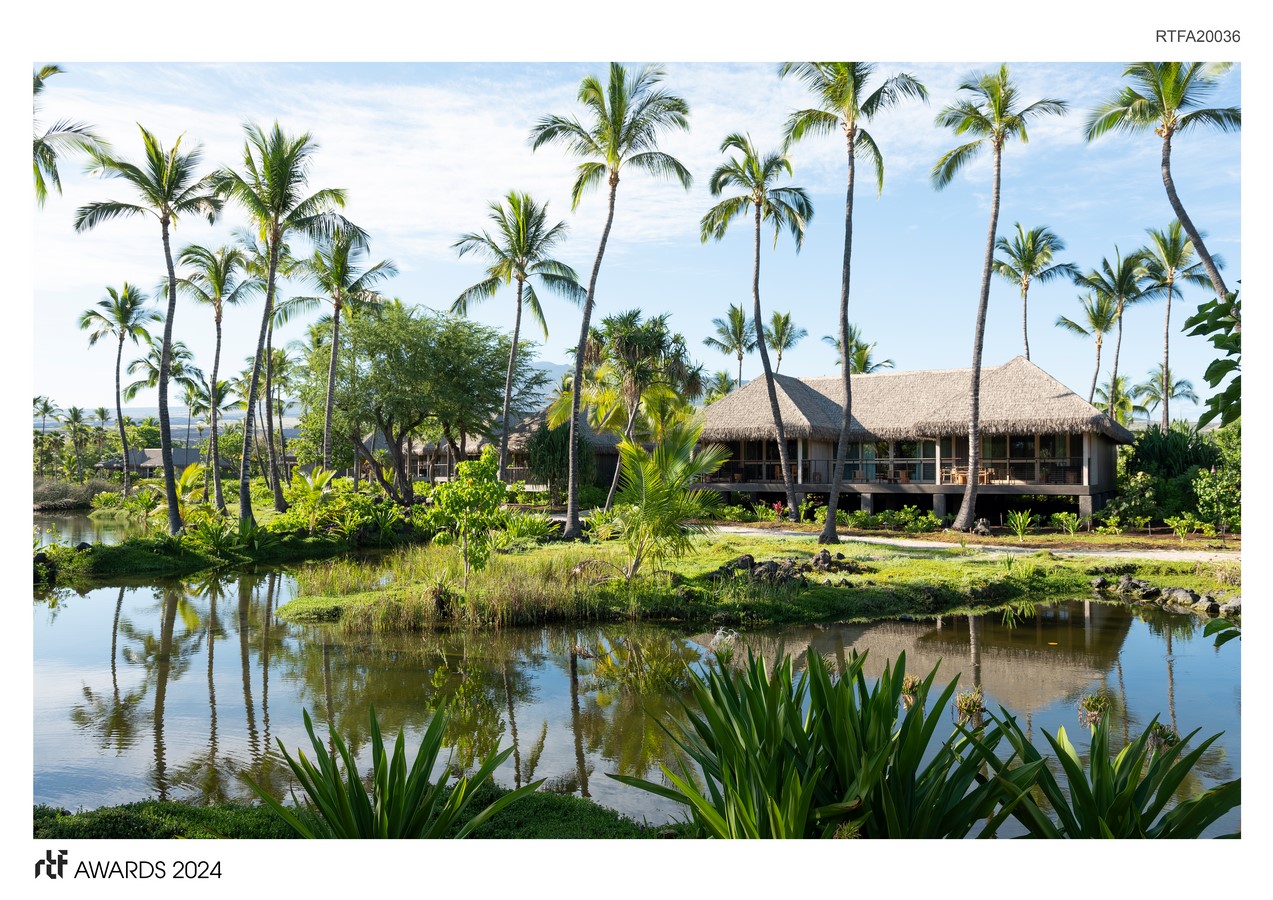
The revelopment encompasses one of the largest, privately owned microgrids in Hawaii. Collaborating with Kona Village Resort developer, Kennedy Wilson, and Good Current, the firm consulted in the design and installation of a 4 MW solar energy system for 100% renewable energy comprised of over 8,000 solar panels, on two acres, integrated into the site plan with minimal visual effect. The energy is stored in state-of-the-art Tesla batteries that can hold up to 12 MWh of solar energy utilized during peak demand hours, reducing the stress on the Hawaii Island grid.
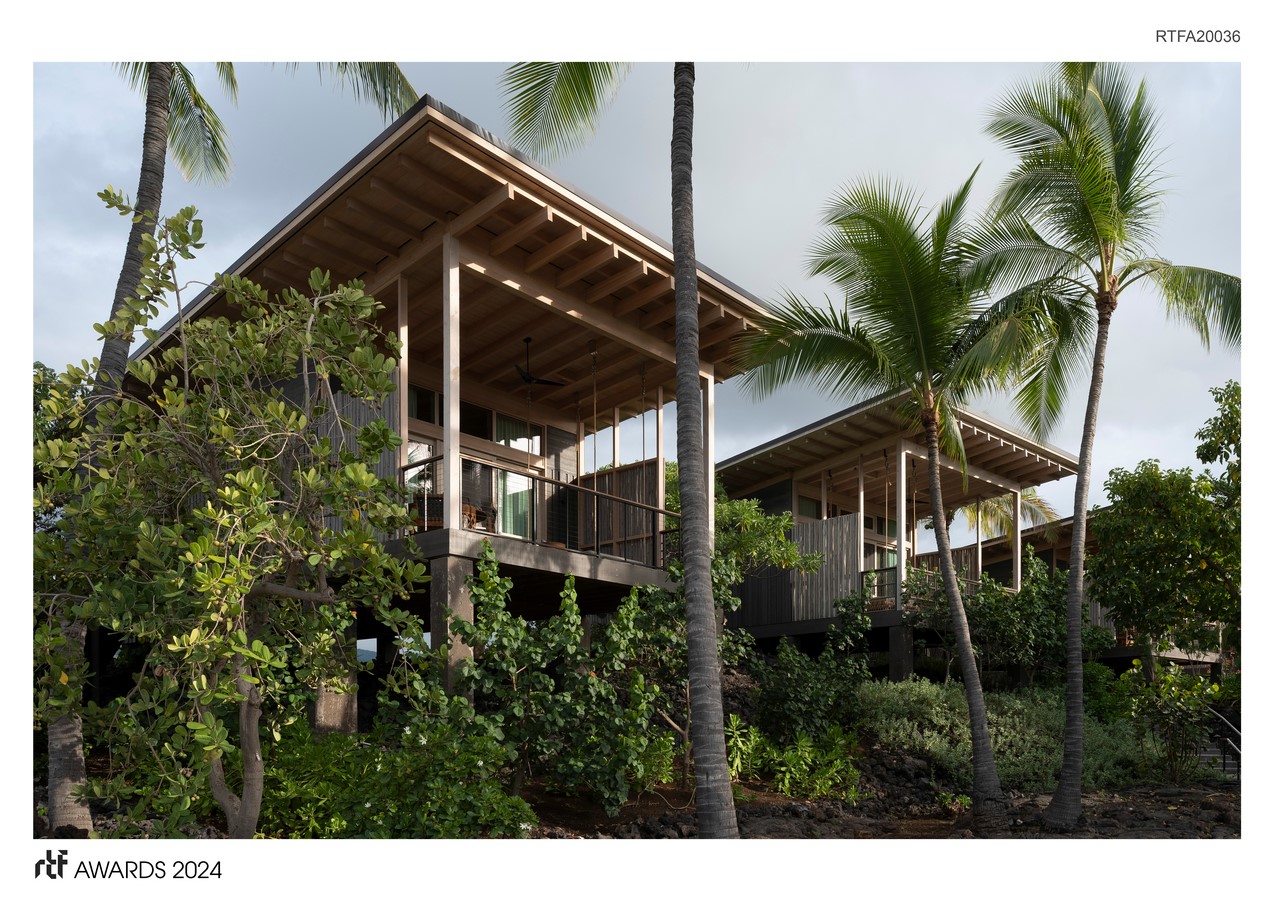
There is a comprehensive water conservation strategy that takes advantage of on-site storm water retention/percolation, on-site wastewater treatment plant with an R-1 retention pond used for irrigation. Fresh water wells tap into the natural aquifer and are processed in the on-site reverse osmosis plant and stored in a decorative lagoon. The combined systems satisify 100% of the landscape irrigation needs to reduce the use of potable water. The reverse osmosis plant also services the onsite chiller plant. A thorough study was made to ensure that the wells drawing from the aquifer did not affect an offshore freshwater spring that has historical significance to the Hawaiian natives.
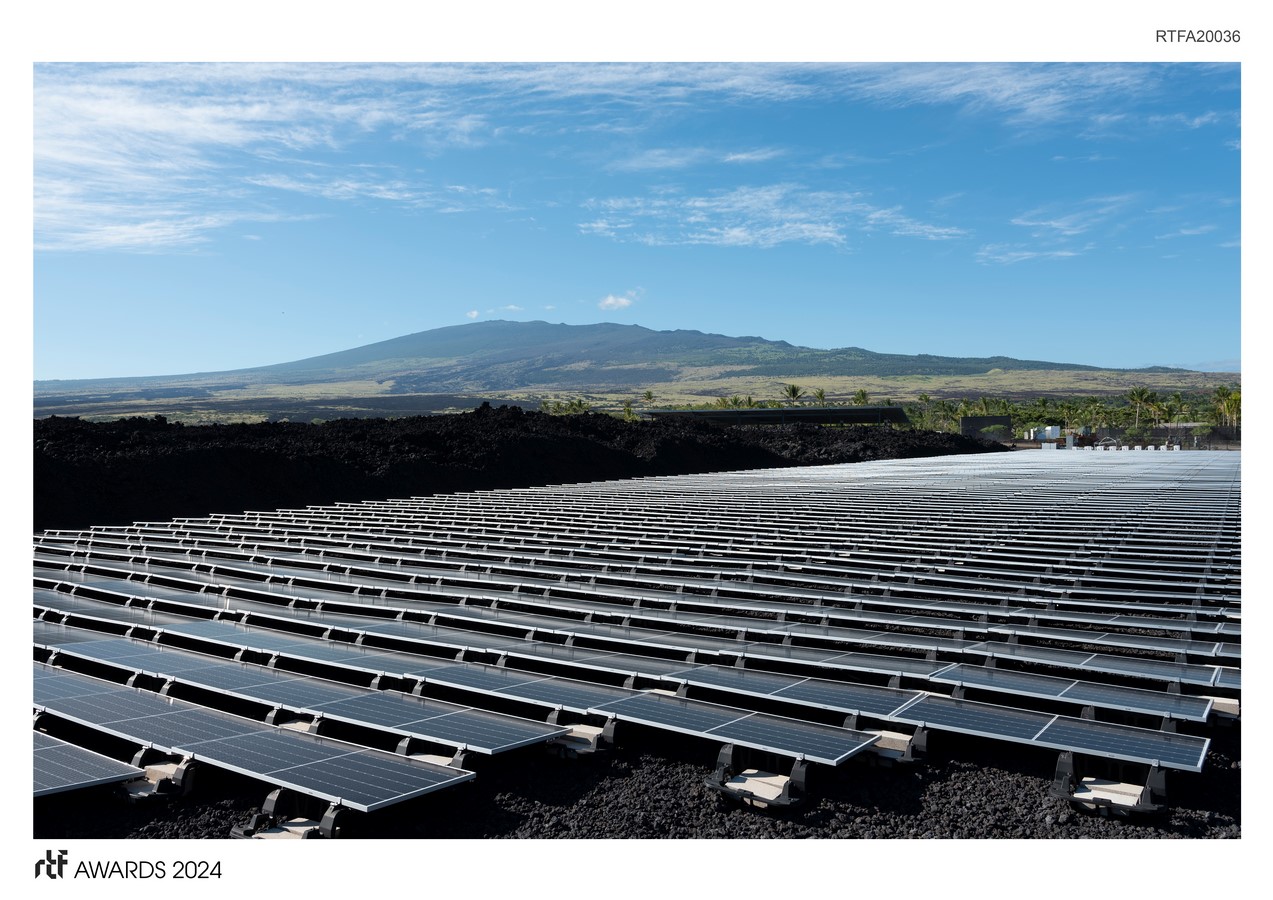
Sensitive site planning emphasized protection of the coastline, beach, lava formations and archeological sites. Guestrooms are elevated on piers, minimizing the impact to the topography and exceed the requirements for flood management. The buildings utilize biophillic design principals to connect the mountain, ocean and natural lava views throughout the resort. Public venues offer enhanced indoor air quality or open-air spaces with passive ventilation and natural light. The resort utilizes low-flow, LEED standard plumbing fixtures and LED lights for energy efficiency. Exterior lighting is focused to reduce light pollution for the local astronomical observatory. White coral paths provide heat island reduction and encourage guests to walk or bike instead of fossil fuel vehicles.

